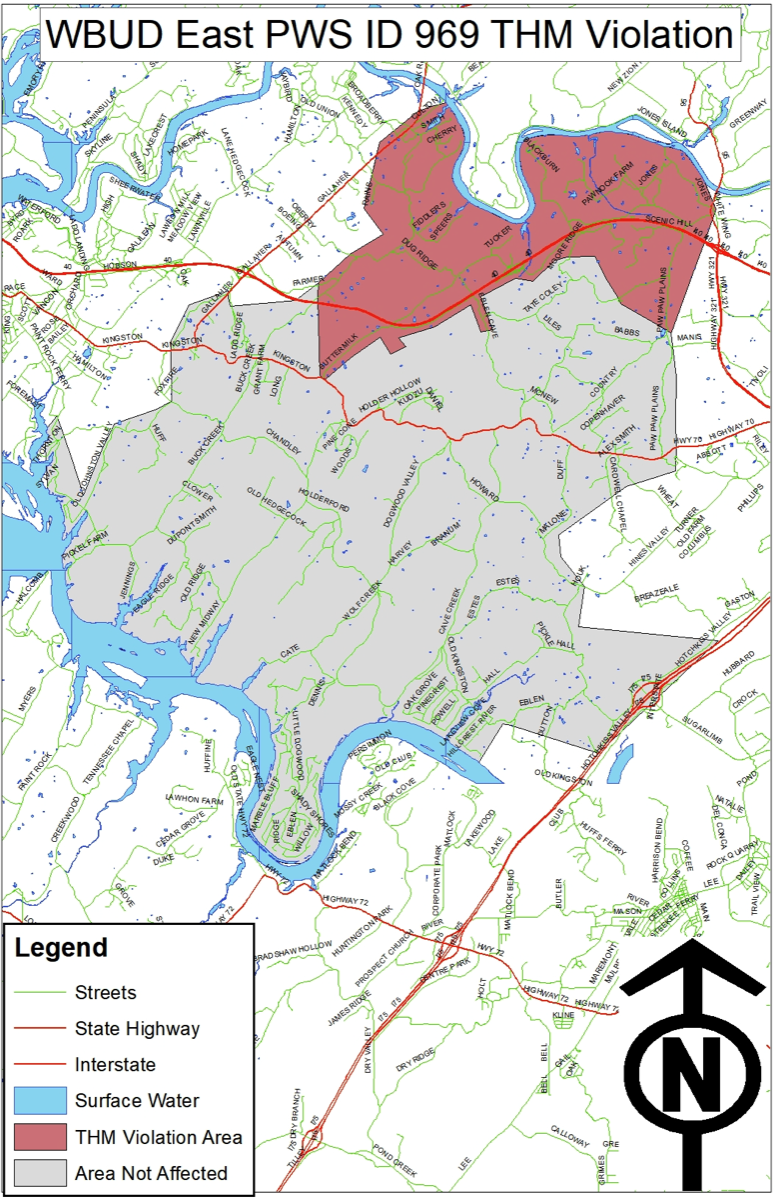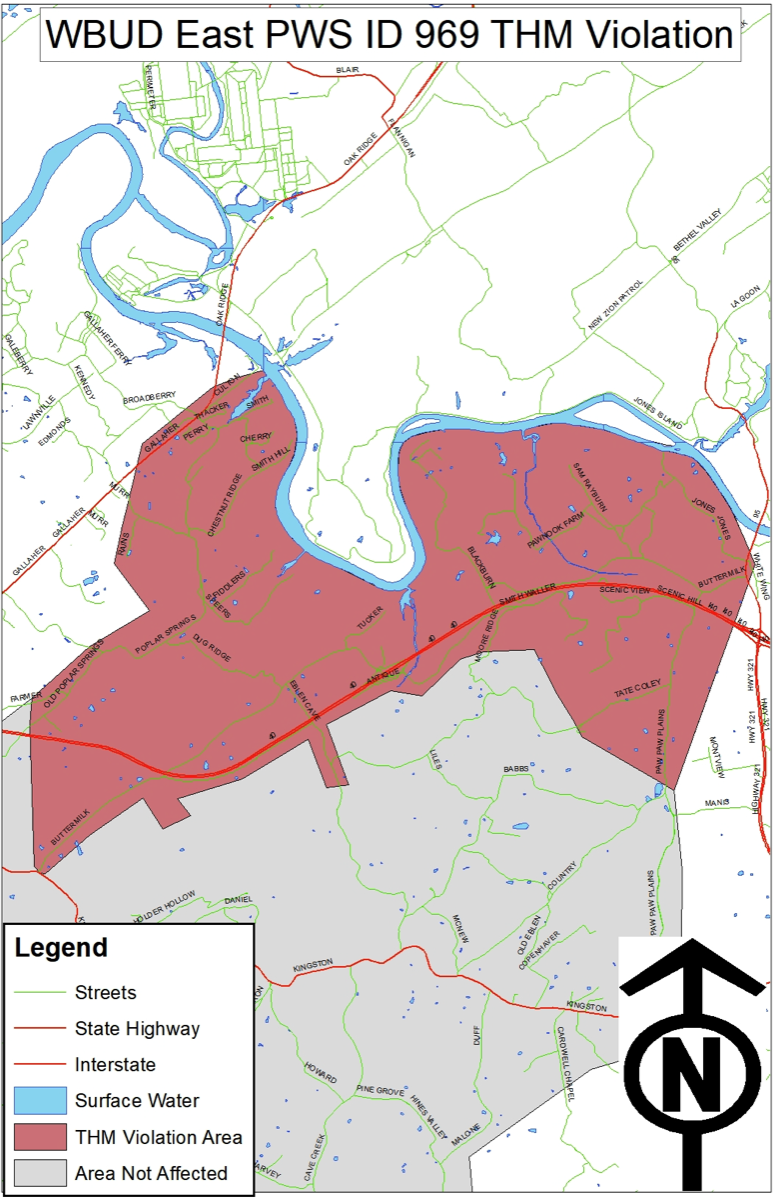The Stage 2 DBPR strengthens public health protection by tightening compliance monitoring requirements for Trihalomethanes (TTHM) and Haloacetic acids (HAA5). The rule targets public water systems (PWSs) with the greatest risk.
Taken together, the Stage 1 and Stage 2 Disinfectants and Disinfection Byproducts Rules (DBPRs) improve drinking water quality. The rules do this by providing protection from disinfection byproducts. Byproducts, if consumed in excess of EPA's standard over many years, may increase health risks.
Important Information About Your Drinking Water
Watts Bar Utility District (WBUD) recently violated a federal drinking water standard. Although this situation does not require that you take immediate action, you as a customer, have a right to know what happened, what you should do, and what was done to correct this situation.
During the April 1, 2022 through June 30, 2022 compliance period the water system's Locational Running Annual Average (LRAA) at site #201, 2500 Buttermilk Road West, for Total Trihalomethanes (TTHM) has been calculated to be 0.0829 mg/L. This value exceeds the Maximum Contaminant Level of 0.080 mg/L set for this parameter.
During the April 1, 2022 through June 30, 2022 compliance period the water system's Locational Running Annual Average (LRAA) at site #202, 4108 Buttermilk Road West, for Total Trihalomethanes (TTHM) has been calculated to be 0.0831 mg/L. This value exceeds the Maximum Contaminant Level of 0.080 mg/L set for this parameter.
Some people who drink water containing trihalomethanes in excess of the MCL over many years may experience problems with their liver, kidneys, or central nervous systems, and have an increased risk of getting cancer.
Total Trihalomethanes are disinfection byproducts resulting from our chlorination of the water to minimize risk of microbial life in the drinking water. The EPA considers microbial contaminants as the greatest risk to the public. We are evaluating the results of the required disinfection and will continue to make an effort to reduce the disinfection byproducts without increasing the microbial risks.
What should I do?
There is nothing you need to do. You do not need to boil your water or take other corrective actions., if you have specific health concerns, consult your doctor.
What is being done?
The risk of illness from TTHMS is much lower than the risk of illness from drinking water that has not been disinfected. Regardless, WBUD is committed to addressing the violation of the TTHM limit. WBUD and our supplier of water is also working to reduce the natural organic matter and thus reduce the precursors of TTHM formation. WBUD will also increase flushing within the distribution system to reduce or avoid one of the mechanisms controlling their formation (water aging). WBUD has increased flushing in the area and has resampled for TTHMS.
During the July 1, 2022 through September 30, 2022 compliance period the water system's Locational Running Annual Average (LRAA) at site #201, 2500 Buttermilk Road West, for Total Trihalomethanes (TTHM) has been calculated to be 0.06963 mg/L. This value is below the Maximum Contaminant Level of 0.080 mg/L set for this parameter.
During the July 1, 2022 through September 30, 2022 compliance period the water system's Locational Running Annual Average (LRAA) at site #202, 4108 Buttermilk Road West, for Total Trihalomethanes (TTHM) has been calculated to be 0.06920 mg/L. This value is below the Maximum Contaminant Level of 0.080 mg/L set for this parameter.
For more information, please contact Watts Bar Utility District at 865-270-8070 or go to https://www.wbud.org/water/water/s2dbpr.html
Please share this information with everyone who may drink this water, including those who may not have received this notice directly (for example, people in apartments, nursing homes, schools, and businesses). You can do this by posting this notice in a public place or distributing copies by hand or mail.
This notice is being sent to you by the Watts Bar Utility District, PWSID# TN0000969.
Date distributed: August 31, 2022.


U. S. Environmental Protection Agency